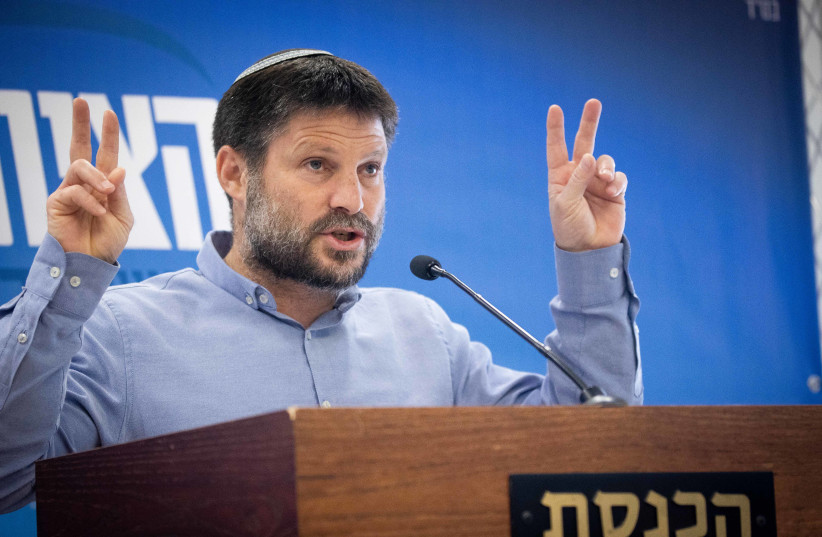The English title chosen for Yair Ettinger’s new book, which has been translated from the original Hebrew by Eylon Levy and Mitch Ginsberg, does not precisely accord with Ettinger’s theme. “Frayed” means worn away, or threadbare. In examining Orthodox Judaism, its place within modern Israeli society and its current condition, Ettinger identifies a number of issues splintering the once-unified face of Religious Zionism, but he certainly does not consider this element within Israeli society to be worn out or in any way defunct.
The author regards the fraying of the National-Religious element within Israeli society as a process, an ongoing drama. Perhaps a more apt title would have been “Fraying.”
Ettinger is concerned mainly, though not exclusively, with the impact of Religious Zionism on the political scene. The last general election, in November 2022, gave birth to what is generally dubbed “the most right-wing government Israel has ever seen.” In the Israeli context, the term “right wing” has not only political but also religious connotations, and the hard Right elements within the government spring directly from the heart of the Religious Zionist movement. Many believe the current administration represents a unique development in Israel’s political story.
What is happening to religious Zionism?
Even so, Ettinger highlights an earlier political event as perhaps of equal significance – the appointment of the first religious prime minister in Israel’s history. Naftali Bennett held office for just over a year – from June 13, 2021, to June 30, 2022. Although he was not haredi and had married a secular wife, Bennett emerged from a strongly religio-political tradition – the National Religious Party – and supported aspects of right-wing policies such as Greater Israel. But he also stood for unifying as many strands of Israel’s religious and political life as possible, exemplified by his broadly based government, which included the Arab-Israeli Ra’am Party. So Ettinger regards Bennett’s quick rise, and equally abrupt departure from the political scene, as a significant milestone in the evolving story of Religious Zionism in Israel.
Ettinger notes that when Bennett was called to the Knesset lectern on the day he was sworn in as prime minister, the first three MKs to be thrown out of the plenum that afternoon for unacceptably vociferous and inflammatory heckling were Bezalel Smotrich, Orit Struck, and Itamar Ben-Gvir. All were from the same Religious Zionist background as Bennett himself, and all three are now government ministers.

Bennett chose as his religious affairs minister an old comrade, Matan Kahana, a man who defined himself as totally committed to Torah, but who had nevertheless sought to modify religious services provided by the state. Within five months of taking office, he had broken the time-hallowed rabbinic monopoly on kashrut supervision in Israel. That battle won, he turned his attention to others on the political table, for example the Orthodox rabbinic monopoly over conversion, burials, weddings, and births, over appointments to religious councils (where he placed an emphasis on the appointment of women) and marriage registration.
His overriding aim was to mitigate the effects of traditional religious coercion over the lives of citizens.
It is the relationship between these two Halacha-supporting elements – a liberal stream exemplified by Bennett and a hard-right element represented by political movements like Otzma Yehudit (chaired by Ben-Gvir) – that Ettinger identifies as competing for the soul of Religious Zionism. On the one hand is the struggle to reconcile adherence to Halacha with 21st-century religious and Israeli realities; and on the other, strict conformity to unchanging traditional Halacha, custom, and prayer, and a hardline interpretation of what the Torah delineates as the Promised Land.
Ettinger makes it clear that a considerable number of Religious Zionist tributaries flow into these two main streams, and that Religious Zionists as a whole form a growing element within Israeli society. In other words, an increasing number of Israelis acknowledge that Judaism and religion-based Jewish values feature in their view of what sort of society Israel is meant to be. The problem is that the more liberal elements want to see change in the way that these Judaic elements have traditionally been exercised.
Unsure about the future, he believes it is possible that the current tension between the two main elements within Religious Zionism could push them farther apart. The liberal camp might continue to integrate into Israeli society, while the more reactionary wing might retreat into isolationist communities. On the other hand, he maintains that many Orthodox Jews are quite comfortable living with one foot in the new world and the other in the ancient, and seem able to reconcile the apparent tension within their own lives.
Ettinger leaves his readers not with answers but with questions. “The ground is shaking,” he writes, admitting that whether Israeli society is becoming more closed or more open is a question waiting for an answer. Hanging on that issue is where the various elements that make up the Religious Zionist movement will place themselves in the debate – or perhaps struggle – over the future of Israel’s national character.
Frayed is a serious and thought-provoking examination of issues of deep concern to many Israelis and a valuable contribution to help understand the ongoing tension between the secular and the religious within Israeli society.
- FRAYED
- By Yair Ettinger
- The Toby Press LLC
- 278 pages; $36.44
